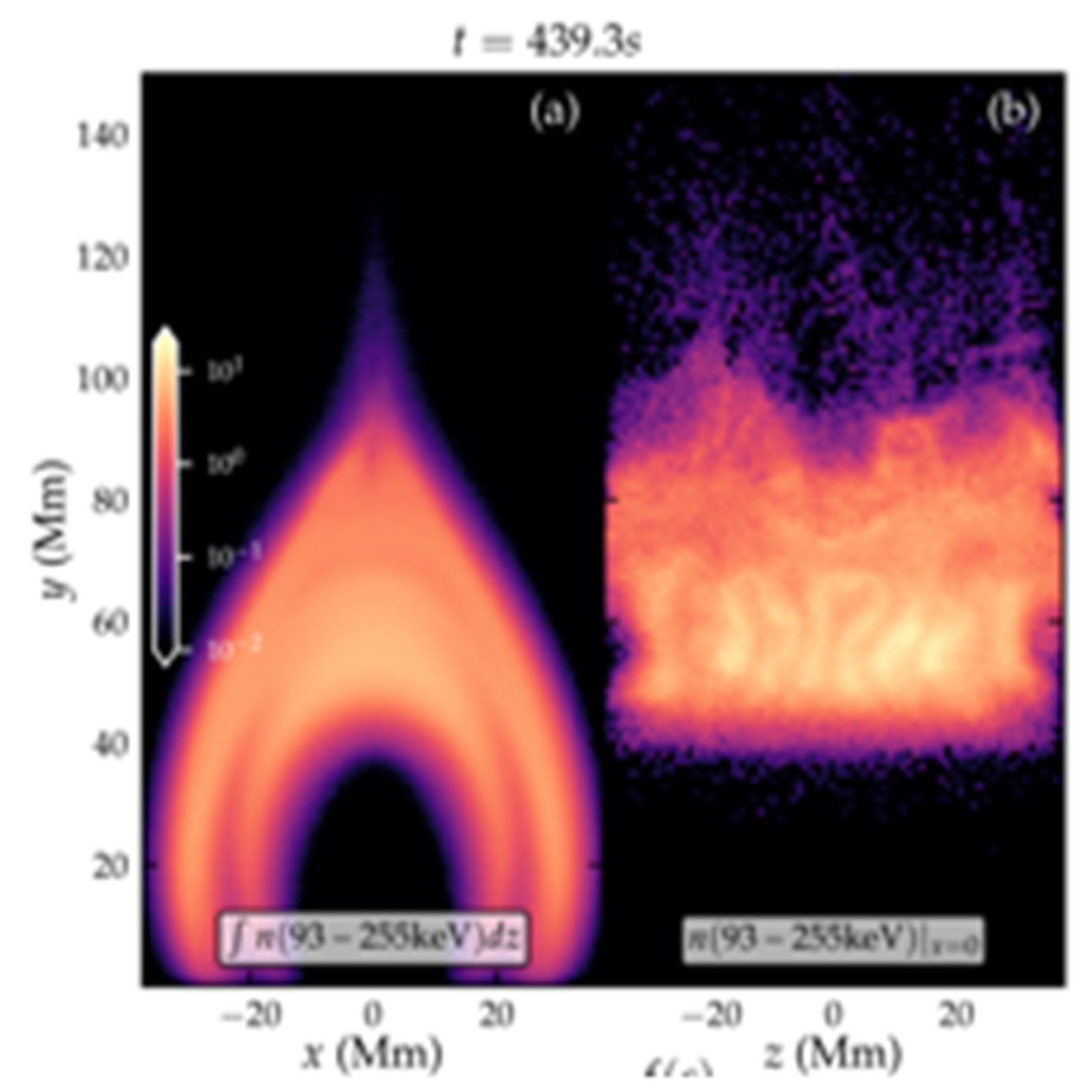Wednesday, September 27, 2023 - 3:10 p.m. to 4:10 p.m.
Morse Hall rm 301 -OR- Zoom
Speaker: Xiaocan Li, Dartmouth College
Abstract: Heavy ion particle measurements of coronal mass ejections (CMEs) collected in the heliosphere indicate that rapid and strong heating takes place at the eruption site and early stages of propagation from the Sun. However, the nature of the heating that produces the highly ionized charge states often observed in situ is not fully constrained. An MHD simulation of one of the most energetic CMEs of solar cycle 23 serves as a test bed to examine the origin and conditions of the formation of heavy ions evolving within the ejecta in connection to those observed during its passage near the Earth (L1). In particular, we investigate the formation of the distinctive double peaked Fe charge state distribution, a quintessential heavy ion signature of CME substructure, as well as the source of the highly ionized plasma observed (Fe16+ - Fe22+). We find the principal heating source experienced by the simulated plasma structures linked to the ion signatures is due to field-aligned thermal conduction via shocked plasma at the CME front. Results show that the bi-modal Fe distributions can be generated through significant heating and rapid cooling of prominence material. However, although significant heating was achieved in the MHD model, the highest ionized material observed in situ was not reproduced. The work suggests that an important missing driver of additional ionization that could reconcile the observations may come from suprathermal electrons, such as those produced via Fermi acceleration during reconnection, strongly suggesting it may be a critical component to the development and extended heating of some of the most extreme solar eruptions.
Check out our upcoming Space Science Center Seminar Series, as well as view previous recordings.
